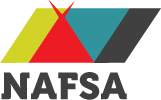Indian tribes are urging banks to ignore attempts by New York’s top banking regulator to stop processing transactions for online lenders whose loans allegedly violate state interest-rate caps.
The Native American Financial Services Association, a group that represents 16 tribes engaged in online lending, sent letters to Bank of America Corp.BAC +1.07%, Capital One Financial Corp.COF -0.11%, J.P. Morgan ChaseJPM +0.55% & Co., Wells FargoWFC -0.14% & Co. and numerous other financial institutions Wednesday, arguing the New York Department of Financial Services’ action infringes on their rights.
“Tribal Nations, with the support and encouragement of the federal government, have engaged in significant economic development efforts, including operating online lending entities now targeted by DFS,” the letter said. “We want you to be aware that we view these actions as a direct threat to tribal sovereignty and our efforts to develop economic self-sufficiency.”
The letter is the latest salvo in an ongoing battle between regulators and firms that make short-term, high-rate loans over the Internet. So-called payday loans, typically made to low-income consumers short on cash, can carry interest rates of as much as 700%.
Last week Benjamin Lawsky, superintendent of financial services for New York, sent cease and desist orders to 35 online lenders, arguing their loans violate caps on interest rates that can be charged in the state. The orders did not specifically target lenders with ties to Indian tribes, though such firms were among those that received the letters. Lawsky’s office is also pressuring banks and other firms that offer payment processing services to online lenders to more closely monitor transactions being made over the Automated Clearing House, or ACH, network. The electronic-payments network is used to deposit and deduct money to and from consumers’ accounts.
In his letter to the banks, Lawsky called the ACH network a “foot in the door” that online lenders “need to prey on vulnerable New Yorkers,” saying banks have been an “essential cog” in allowing predatory lenders to skirt state law.
He called on the banks to work with DFS to create new procedures to “choke off ACH access” to the 35 lenders targeted by his office.
A spokesman for Lawsky and representatives of Bank of America, Capital One, J.P. Morgan Chase and Wells Fargo did not immediately respond to requests for comment on Wednesday.
Courts have long upheld that tribal-owned businesses enjoy the same sovereign immunity as tribal governments and aren’t subject to state law, according to legal experts. The Native American Financial Services Association argues Lawsky’s efforts violate tribes’ sovereign immunity.
“Online lending, when offered by federally-recognized tribal governments, is legal,” NAFSA said in its letter to banks. “Tribal governments export tribal law over the Internet and consumers seeking our online lending services agree to abide by it. The State of New York is doing an end-run against our legal business by threatening banks like yours and the third party providers who partner with our tribally-owned enterprises.”
The letter comes two days after New York Attorney General Eric Schneiderman filed a lawsuit against Western Sky Financial LLC, an online installment lender whose loans carry interest rates of as much as 355%. The company, whose owner is a member of the Cheyenne River Sioux Tribe, has argued its transactions with borrowers are governed by tribal law.
Schneiderman’s suit claims Western Sky’s loans aren’t subject to tribal immunity because it is not owned or operated by a tribe.
–By Andrew R. Johnson
Read more at Wall Street Journal: Money Beat









